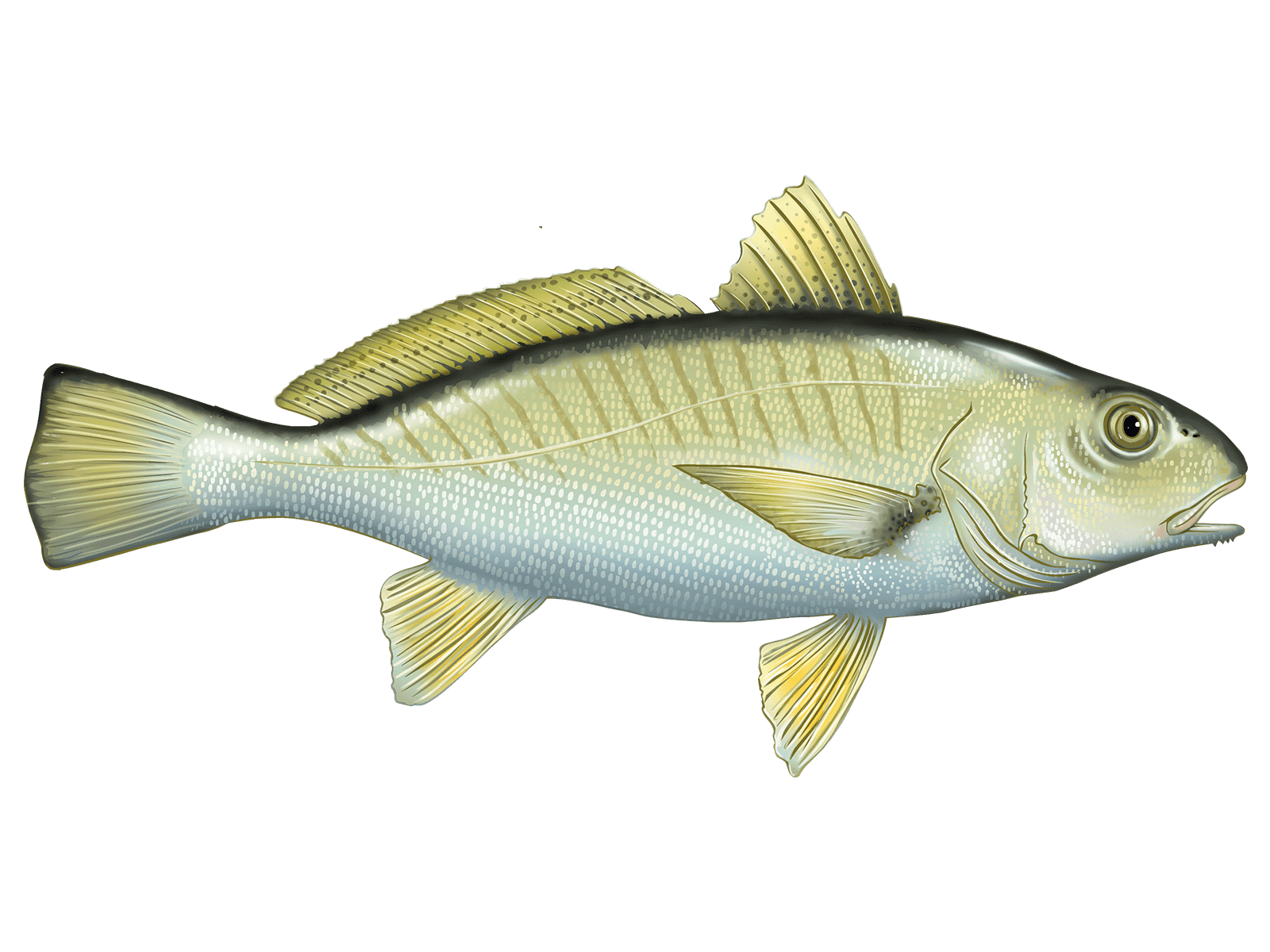Atlantic Croaker

Species Details
Micropogonias Undulatus
Sciaenidae
Perciformes
Offshore, Ocean Floor, Estuaries
1 - 8 lbs.
18" - 27"
Atlantic Croaker (Micropogonias undulates) Fish Description
The Atlantic Croaker is a pink-silvery fish with oblique brown spots along its flat elongated body. It’s a species that thrives in brackish waters and its close relatives are the silver perch and the spot croaker. It has 3 to 5 pairs of tiny barbels under its chin, which they use to look for food. The fish is a bottom feeder and mainly eats crustaceans, worms, organic debris, mollusk, and small fish.
Interesting Facts About the Atlantic Croaker
- The Atlantic croaker is a member of the drum family, all members of this family can make a sound but the Atlantic croaker is the loudest. The name croaker is derived from its ability to make noise by vibrating strong muscles against its swim bladder.
- The males use their croaking sound to attract females, but females also croak as a fright response. You will most likely hear their croaks if you catch one.
Size of the Atlantic Croaker
The Atlantic croaker is a small game fish. Its average size is 18 inches and usually weighs 1 lb. The biggest Atlantic croaker fish caught was 27 inches and weighed 8 lbs. This fish matures quickly with only ages of 1-2 years they’re considered as adults.
Habitat and Distribution of the Atlantic Croaker
There are plenty of Atlantic croakers in America. They’re a native fish that can be found mainly in estuaries, offshores, and coastal waters. As derived from their name, they’re common on the Atlantic coasts from Massachusetts to Florida and in the Gulf of Mexico. One of the best spots for this fish is the Chesapeake Bay which they visit every March through October.
They thrive within depths of 26-266 feet, where the bottom is muddy. Its preferred temperature is 60.8 to 77°F. During the fall season, the adult croakers would visit continental shelves to spawn their eggs and stay there to overwinter and then return to their estuaries in spring and summer.
How to Fish the Atlantic Croaker
Catching croakers is easy, but they’re still a famous game fish for both beginners and experienced anglers. Aside from being known for the sound that they make, they’re also good tasting fish. You need to maintain a nice depth of 25-30 feet to fly fish an Atlantic croaker since they’re bottom feeders. Look for good spots like channels or deep holes. The best time to fly fish for the Atlantic croaker is before or after high tide.
One thing you can do is to gather one of its favorite meals, the ghost shrimp, in the surrounding waters. Look for tiny holes in the area and pump out the shrimp, and then use them as bait for the fish.
Recommended gear to fly fish an Atlantic croaker is a 6-foot medium rod with a 12-20 lb test attached to a double hook bottom rig. Their mouths aren’t that big so the recommended hook sizes are 3 to 4. To help the rod stay at the bottom, use a 1-ounce egg weight attached to the leader line between the hook and bait of at least 1 foot.
If you can’t find shrimps, you can also use other natural baits like bloodworms, squids, and/or clams. Use lures that glisten a bit underwater to catch the attention of the fish, like an underspin and spoon. Anglers have also found success with bucktails.






